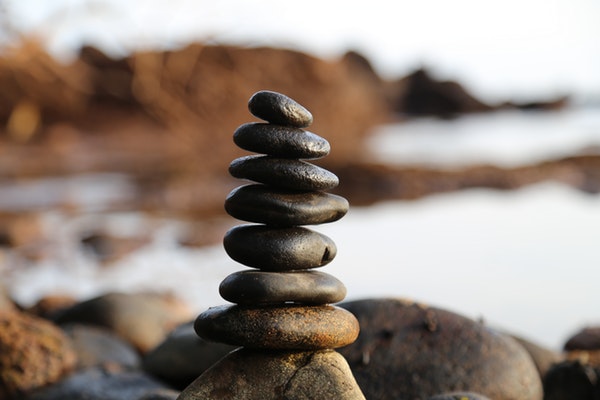These days, we’re up against a new normal as Covid-19 continues to impact countries around the world. Perhaps for the first time, due to social distancing recommendations, you’ve found yourself working remote without the regularity of a long commute. Maybe you’re taking care of kids at home and keeping them occupied is proving to be difficult.
Everything “normal” about your typical lifestyle might look different right now:
- Wake-up time and bedtime
- Grocery shopping
- Leisurely activities
- Retail shopping
- Spending time with loved ones
- Working out/getting active
Finding Balance
Rachel Goldman, PhD, FTOS, is a licensed psychologist specializing in health behavior. She is the Clinical Assistant Professor in the Department of Psychiatry at NYU School of Medicine and is currently in private practice in NYC, where she sees individual clients pre and post-bariatric surgery. Here is what Dr. Goldman suggested for keeping up with healthy habits and finding balance when your routine is disrupted:
1) Maintain some sort of routine, even if it’s a new one.
Your routine needs to include healthy behaviors like staying hydrated, eating well, moving, sleeping and managing stress. Our daily lives have been disrupted, which means our daily routine is also disrupted and different. When we don’t have a routine or structure, we tend to feel more anxious. You might also have difficulty concentrating or staying focused.
So, make sure you keep a routine, even if it’s not the one you had before – which it won’t be. This should consist of a set wake-up and bedtime as well as set meal times. If nothing else, you can work everything else around these things.
2) Remind yourself that self-care is not selfish.
You shouldn’t feel guilty for taking care of yourself. It’s like the oxygen mask on the airplane. Think about what you need to do in order to be your best self right now, then find a way to make it happen.
If nothing else, take a few minutes each day just for you. For some people, this might be a quiet bath. For someone else, it could be a walk outside. For people at home with kids, maybe you need to wake up a little earlier to get some work done or participate in self-care.
3. Start and end your day doing something calming.
This will bookend your day with a calming and relaxing feeling and help set the tone for your day, too. It can also help encourage sleep if you are feeling stressed or anxious. A calming activity for you might look like yoga, a bath, reading a book or doing a crossword puzzle.
4. Engagement in movement.
Physical movement is good for both physical and mental health. It can help you stay grounded. Even if you can’t go outside, try to move every day. Have a plan for what you can do and apply this plan to your schedule so you’ll stick to it. Your plan might include:
- A guided workout video
- A walk outside
- Yoga
- Stretches
- Housework/yard work
5. Be mindful of the language you speak to yourself.
Our thoughts become our reality. Be kind to yourself and remind yourself that this is a difficult time, so maybe everything doesn’t get done. Or, maybe your “good enough” has to be good enough right now.
More Helpful Resources
These additional support resources are provided by the Obesity Action Coalition (OAC), Founder of Your Weight Matters:






